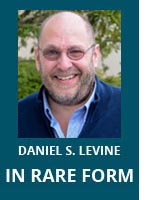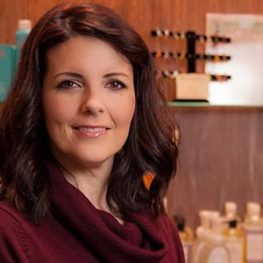
A rare disease can affect your ability to work. Surviving a rare disease, though, can change the way you think about the type of work you want to do.

Photo: Maria Voermans, program coordinator for cancer support services at Froedtert & the Medical College of Wisconsin
That was the case for Maria Voermans, who gave up working as a veterinarian assistant to take a job at the center where she was treated for her rare cancer.
Ten
years ago, Voermans developed pain in her upper right thigh while playing with
her four-year-old daughter. She enjoyed sand volleyball and assumed the pain
was the result of a sports-related injury. Her doctor prescribed
anti-inflammatories and rest.
But when the pain persisted, she went to see an orthopedist specializing in
sports medicine. He figured she herniated a muscle but ordered an MRI to be
safe. The MRI revealed a five-centimeter mass and she was diagnosed with proximal-type
epithelioid sarcoma.
Sarcomas are rare—about 1 percent of all adult cancers are sarcomas, which are tumors of the soft connective tissue. Proximal-type epithelioid sarcoma is ultra-rare. It represents about 1 percent of all sarcomas. It’s aggressive and patients often live for only a short time after diagnosis.
The only thing Voermans knew about sarcomas was that when a cat had one in the veterinary practice where she had worked, the treatment was limb amputation.
When the doctor delivered her diagnosis in 2008, she was dumbfounded. She hadn’t considered anything that serious being possible. It was a surreal moment. She was numb. She laughed. “I really did not just give you very good news,” the doctor said. “There’s nothing really humorous about this.”
Voermans was young and otherwise healthy. Her doctor recommended chemotherapy, even though it was successful in less than 15 percent of cases. She underwent treatments that involved staying in the hospital for five to six days at a time for 24-hour-a-day treatments. She completed two cycles and stopped when a scan showed her tumor continued to grow.
She was next treated with radiation and then underwent surgery to remove the tumor in January 2009. She’s been free of the cancer since.
After that experience, she felt the need to switch careers. She enjoyed working as a veterinary assistant but wanted to find work that had a deeper meaning for her. In 2011, when the opportunity arrived, she managed to get a job at Froedtert & the Medical College of Wisconsin where she was treated. She’s worked there ever since and today is program coordinator for cancer support services.
It’s not always easy work. She’s developed friendships with people who were diagnosed with less aggressive cancers than she had who were younger and healthier than she was when she was diagnosed, but nevertheless died. At times, she’s said. that left her with survivor guilt and it’s been difficult to process.
But Voermans said that there is a lot of negative information about the dire outcomes for people with a rare disease. Patients often have a much harder time finding success stories. As a former patient who is ten years out from an often-fatal diagnosis, Voermans believes her very existence provides hope to patients who come in contact with her.
“When you are in the thick of it, especially if you are recently diagnosed, you are so overwhelmed by the possibility of death,” said Voermans. “They say, ‘You’ve changed my whole day. You’ve given me hope.’ It’s been a pretty incredible experience.”
She also feels she can bring a patient perspective on issues, something that can sometimes be eye-opening to the medical team. For instance, she has sought to make the medical team aware of the need to address issues of fertility with young adult patients. Even though she has two daughters, she has since remarried and can no longer have children.
“This is the work I need to be doing,” she said. “It’s everything I could have asked for.”

Stay Connected
Sign up for updates straight to your inbox.
